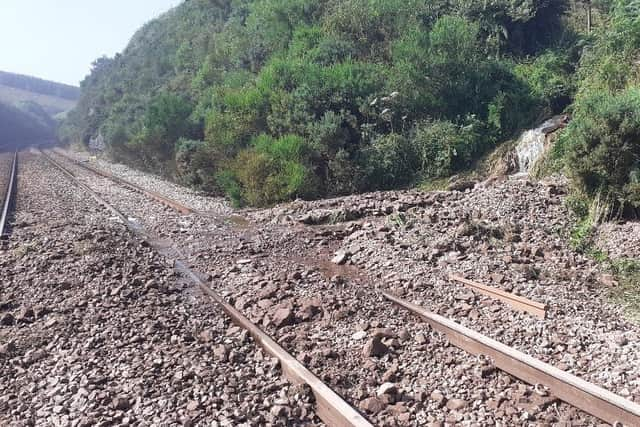‘Unrelenting’ focus needed to ensure no repeat of Stonehaven derailment – rail safety chief
The rail industry must be “unrelenting” in keeping the British network one of Europe’s safest as it grapples with the huge challenge of climate change and implementing dozens of recommended improvements following the Stonehaven crash, HM Chief Inspector of Railways Ian Prosser has warned.
He said Network Rail was making progress on these but there remained “much work to do”. Only two of the 13 recommendations to Network Rail in the UK Department for Transport’s Rail Accident Investigation Branch (RAIB) report into the crash, published 18 months ago, have been officially completed, although the infrastructure body said it had finished another two.
Advertisement
Hide AdAdvertisement
Hide AdThe RAIB called for better drainage design, record-keeping and inspections, extreme weather and derailment mitigation, and how control rooms were managed.


It also recommended safety improvements to the 40-year-old train fleet involved in the crash, which does not meet modern crashworthiness standards. These are being considered by a Scottish steering group under former RAIB chief Carolyn Griffiths.
Two taskforces launched after the crash, into earthworks management and weather action, have produced some 60 further recommendations. The former highlighted that the stability of cuttings and embankments, many built more than 150 years ago, was threatened by intense rainfall from climate change.
It said the “key challenge” was for Network Rail to mitigate the impact of landslips, “as currently it is not reasonably practicable to detect nor prevent all earthwork failures”.
Separately, the Office of Road and Rail (ORR), which regulates rail safety, warned in its annual rail health and safety report in July: “Progress has been slow in some areas, and we believe Network Rail needs to do more to drive change across the regions.”
It also criticised some Network Rail regions for not establishing dedicated drainage teams, as recommended by the earthworks taskforce under Lord Robert Mair, which it said posed a “significant risk”.
The report warned: “There is a reason why Lord Mair included the recommendation about dedicated drainage teams, and continuing with, in effect, the status quo may lead to a failure to learn the lessons of Carmont.”
It also said there was particular concern about Network Rail’s “substantial” shortage of drainage staff in some regions but recognised it was committed to “fully resource” the teams by the end of March next year.
Advertisement
Hide AdAdvertisement
Hide AdThe ORR also reported shortcomings in drainage inspections, some of which “did not show an ‘enquiring mind’ approach”. It added: “It seems clear that in some cases, drainage inspections were not being carried out with suitable rigour."
Network Rail said it had started making changes immediately after the crash and was “working hard” to implement the RAIB’s recommendations.
Its spokesperson said: “We have made significant changes to how we operate services during periods of extreme weather and have increased our investment in new technologies to help manage the impact of climate change. The Scotland’s Railway integrated control is also the first in Britain to establish a 24/7 specialist weather team to help manage weather events.”
A spokesperson for the UK Department for Transport, which is responsible for rail safety, said: “We continue to review Network Rail’s progress on recommendations set out following the tragic incident at Stonehaven.”